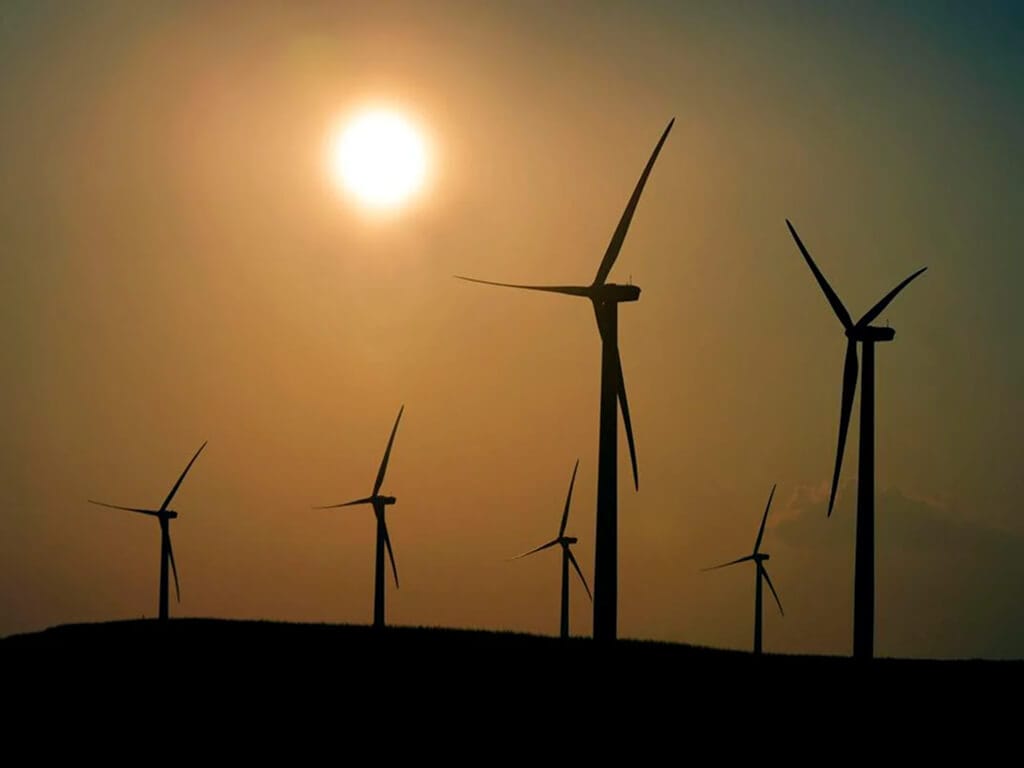Wind Power Meets Resistance in the Ozark Highlands
Arkansas counties are pushing back against wind energy projects, with bans and moratoriums across the Ozarks. Residents cite property values, safety, and environmental concerns, while Scout Clean Energy moves ahead with the Nimbus Wind Farm.

The global wind industry added 117 gigawatts of new capacity in 2024, highlighting its rapid growth worldwide. Arkansas, however, is moving in a different direction. Across the state, and especially in the northwest, wind energy projects are facing growing resistance from residents and local officials.
In Crawford County, officials recently approved a five year ban on commercial wind turbine construction, citing fears that the towering structures could limit future development and damage the county’s natural landscape. Other Ozark counties, including Carroll, Madison, Newton and Boone, have taken similar action.
For many residents, the opposition is as much about culture as it is about economics. Turbines rising more than 600 feet into the air are viewed as a threat to the sweeping views of the Ozark Highlands and to the quiet pace of rural life. The pushback is not limited to the northwest. In eastern Arkansas, Crittenden County has enacted a six month moratorium, a sign that resistance to wind energy development is spreading across the state.
Property Values and Safety Concerns
State Senator Bryan King, a Republican from Carroll County, said the community was caught off guard when the wind farm issue first surfaced about a year and a half ago. Since then, residents have voiced growing concerns, particularly about the effect turbines could have on property values.
State Representative Brad Hall pointed to estimates suggesting that home values could decline by as much as 18 percent for those living within a mile of a wind farm. He stressed that for many Arkansans, home equity is the primary source of wealth, built over decades.
Questions have also been raised about whether local volunteer fire departments would be prepared to handle emergencies such as turbine fires, adding to the unease.
Caroline Rogers, a Carroll County justice of the peace and founder of Stop Wind Farms AR, brought attention to the region’s geology. She explained that the Ozark Highlands rest on karst terrain, a landscape defined by sinkholes, underground springs, and unstable ground. Rogers argued that this type of terrain is fragile and unpredictable, making it especially vulnerable to large-scale construction projects like wind farms.
Spotlight on the Nimbus Project
Much of the debate in Carroll County centers on the Nimbus Project, a wind farm under development by Scout Clean Energy. The project, the first of its kind in the Ozarks, will include 30 turbines spread across 14 square miles of mountaintop terrain.
Scout estimates the Nimbus Wind Farm will generate 180 megawatts of electricity, enough to power tens of thousands of homes, while providing $31 million in tax revenue to Carroll County over 30 years. For many residents, however, these benefits do not outweigh their concerns about property values, safety, and environmental impacts.
Scout’s Position
Scout Clean Energy says the Nimbus Project has now entered full construction. Mark Wengierski, the company’s vice president of development, called the milestone the result of more than a decade of planning and support from local landowners.
He noted that nearly 200 workers are currently on site, providing an immediate economic lift as they spend money on lodging, dining, and shopping in the area. Scout expects construction to finish by early 2026 and has pledged to remain an active presence in the community.
The company continues to emphasize the project’s economic benefits, while many local residents remain focused on potential risks. Political leaders, meanwhile, are paying closer attention to the concerns raised by their communities.
Future of Renewables Unclear
Despite Scout’s progress and optimism, the future of wind energy in Arkansas remains clouded with uncertainty. With President Donald Trump expected to take a harder line on clean energy, Republican-led states such as Arkansas could begin rolling back support for these projects.
Many fear that the backlash against wind power will not stop there. If opposition spreads to solar, it could slow the state’s entire transition toward renewable energy, leaving Arkansas at a pivotal crossroads.





